The English language, as it has evolved, is a problem. Here’s an image.
The language assures us that these are “clouds”, which culture defines as water vapour, blowing across the sky, which it assures us is a layer of gasses above the Earth. The language offers a few other words: “sunset”, “light,” and perhaps even “snow clouds” or “beauty.” That’s about it. But look how strange that is. How can these “clouds” blow? Isn’t it the wind that blows? And how can they cross the sky, when the sky surrounds the entire Earth? And how can the sky be above the Earth, when it is of the Earth? Surely, old understandings are mucking up the great project of lifting vision away from human bodies and giving it to words alone and the people who control them. Personally, I find the thought repugnant that there is a priestly class of word operators, who control what all people interpret of what they see. If you find me using too few words in this blog, it is out of respect. “Just look!” I want to say, but words, of course, get in the way of that and the only way to deal with that is to use more of the darned things, so, out of respect, and with apology, here are a few more. Let’s look:
This image shows an Earth that rolls in clouds just as the “clouds” do. The old understanding here is that a cloud is a clod of Earth that is in a weightless space, that is called a “sky,” which our ancestors knew as a cloud. In the same way, a clod of Earth is a cloud in a heavy space, and from a human perspective, as a be-ing be-tween these two states, the “sky” is a (s)keu: a cover. It spans the height of one’s head (one’s height) as far as the eye can see. It is defined not by blue light but by the cloud that fills it.
This is the water above and the water below of Genesis. The one is water. The other is earth. They are the same substance.
As Genesis points out,
And the earth was without form, and void; and darkness was upon the face of the deep.
To be without form is to be unknown. It is to be wide, a Veit, or a Veldt…
Veldt in Namibia. Source.
… or a width…

Chilcotin Grassland above Farwell Canyon
… or land one has not crossed…

Myvatnssveit, Iceland
… and because one has not crossed it, it is unknown. Knowing is memory. It is minding, or keeping a thing in mind. But there’s a problem with all this. If the cloud …
is unknown until it is crossed and kept in mind …
… does separating what is into separate words, such as Earth and Cloud and Sky, so they can be brought together in understanding…
… because according to Genesis, behind its face, in the deep, there is light…
Dragonfly at Big Bar Lake
… actually speak of human experience, where the light is often within…
… or does it only delay the answer to the question of how to unify? Well, look around. Here’s your answer:
The Garden of Eden, Fenced for Separation, With Angels With Spread Wings Holding Elemental Power in the Guise of Social Utility, in Bella Vista
Is that the only way of knowing? Does this separation work? Does it help to say that we no longer live in the Beginning, that creation was a long time ago, that the separation has been made once, and is not made always, in every perception, and doesn’t dissolve back into it again? Does it help to say that this is a tree and not a cloud? Is it enough to say, “Oh, but Harold, that’s a metaphor?” Is it enough to say “Human consciousness is created from metaphor”?
Isn’t it, rather, from presence, from be-ing? Well, the English language as it has evolved is too practical for that. It foregrounds utility and sends everything else into the background as art. But that’s. English, and not the world, and not human experience as a whole. So, if we’re going to get to some kind of state in which the Earth is full of be-ing again, and live, and constantly regenerative in every moment, it is going to have to be from more than the understanding of English. We’re not going to get there by speaking English, because we will continually defer the moment of rebirth to the future, or the moment of creation to the past, and will continually assert its presence through a memory of created things, in an understanding in which things that have been created can be continually recombined into new forms. Is that the work that needs to be done? Is that a respectful way to approach the Earth? Or is it a way to use it for some other ends?
Isn’t the concept that creation is destruction the viewpoint of an invader? If it is, then it means for there to be creation here there must be invasion. And that is the end of memory, of minding, not its beginning. English, if I may make a leap, because this has been a lot of words, hasn’t it, is the language of surviving invasion. I mean, think of it: Britons, Celts, Romans, Frisians, Norse, Norwegians, Normans, it’s a proud story of survival, but is it necessary to go through such pain? Or to pass it on to others?
Williams Lake
Surely not. English is the language of the invader in this land. When we speak it, we are speaking not the moment of creation but the moment of invasion and the destruction that must be done before English can move freely and comfortably through the space that is our bodies still, and which is still unknown. Or almost unknown. For we know this much: we are able to pass between states of energy, from action to stasis to action again, in the air …
… and in the seed.
These are memories from before English had us in its grip. We know where we are. It is no longer acceptable to be told that that is a metaphor, that it is the appearance of thing being like thing. They are not ‘like’. They are. And so are we. People and things both are. They are this are, a joint form of be-ing, not individual but together, as a flow. It is an old understanding given us by our ancestors, who understood that water was not a substance but aqua, a flow. These words, which are older than English, are the life within English, for the vowels, the “a” of aqua and the “ow” of flow, are the same. “Aqua” and “flow”, in other words, are the same word, the “are”. Even the water is the same word, with one difference: it is a specific form of the flow that is the coming forth, the welling out, and the gathering. It is what the Earth cups in a basin or we cup in our hands (from that basin, most likely). It is a holding that is a form of the flow, a holding out, a giving. It is not some stuff, as English allows, for pumping into the rock to break it and push out poisonous oil in its place. That is the moment of conquest. It is slavery. But, of course, I have been more than clever here, as you have no doubt already noticed, because all of this, all of these too-many-words, are English. As English speakers, you and I know about this kind of bind. Every day we have to use this language for purposes that it is not officially for. We are all conquered peoples, trying to bring the old knowledge forth, to mind it, in a colonial language that tries to make us forget. These are terms often used to describe indigenous cultures in Canada today. These are terms that the jewish poet Paul Celan used to describe the experience of being only able to write poetry about his mother in the words of the men who killed her in a transit camp on the way to Auschwitz by shooting her in the throat, the very place at which she (and he) might have had a different voice. Celan killed himself over it, to our great loss. The murder of indigenous women continues, as does the suppression of indigenous knowledge through the continued use of English as the ‘native’ language of Canada. It is not a native language to any of us. It is a long, historical struggle. Let us at least not accept its goals for us as our own, or its grammars as time.
This soil eroding in a gravel pit above my house is not “death” or “entropy.” It is life. Remember: water and earth and sky are the same substance, the same cloud, passing through each other in a great weaving. We are in the eye of the storm. It is not to “make” that is to create but to mind. It is to take care of the transformations, which is to say, it is to praise them.
Categories: Ethics, First Peoples, invasive species, Nature Photography, Water


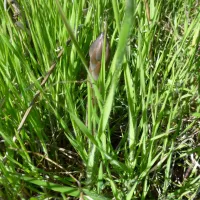
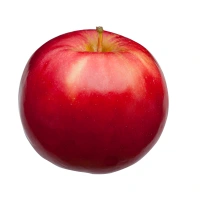
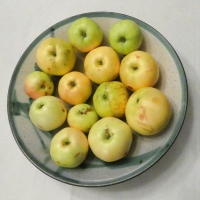

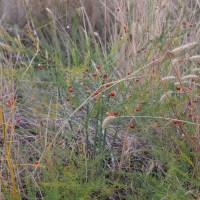

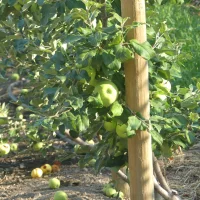

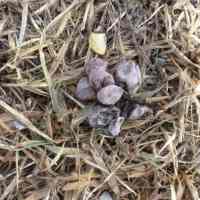
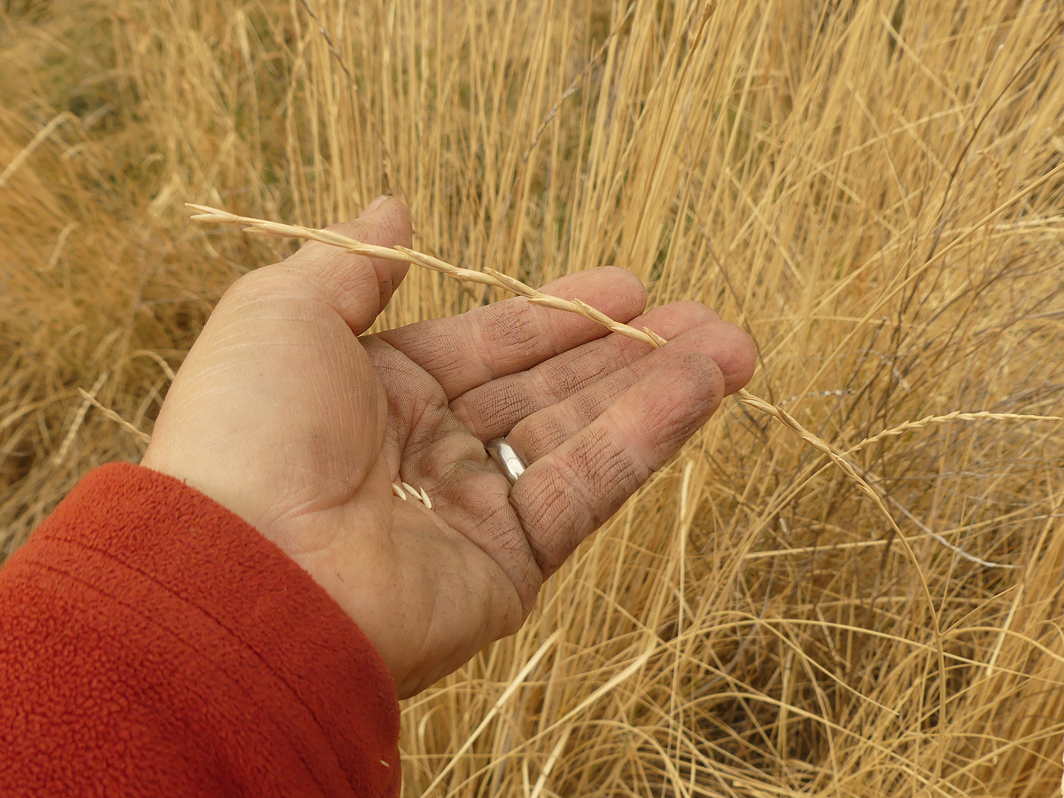


















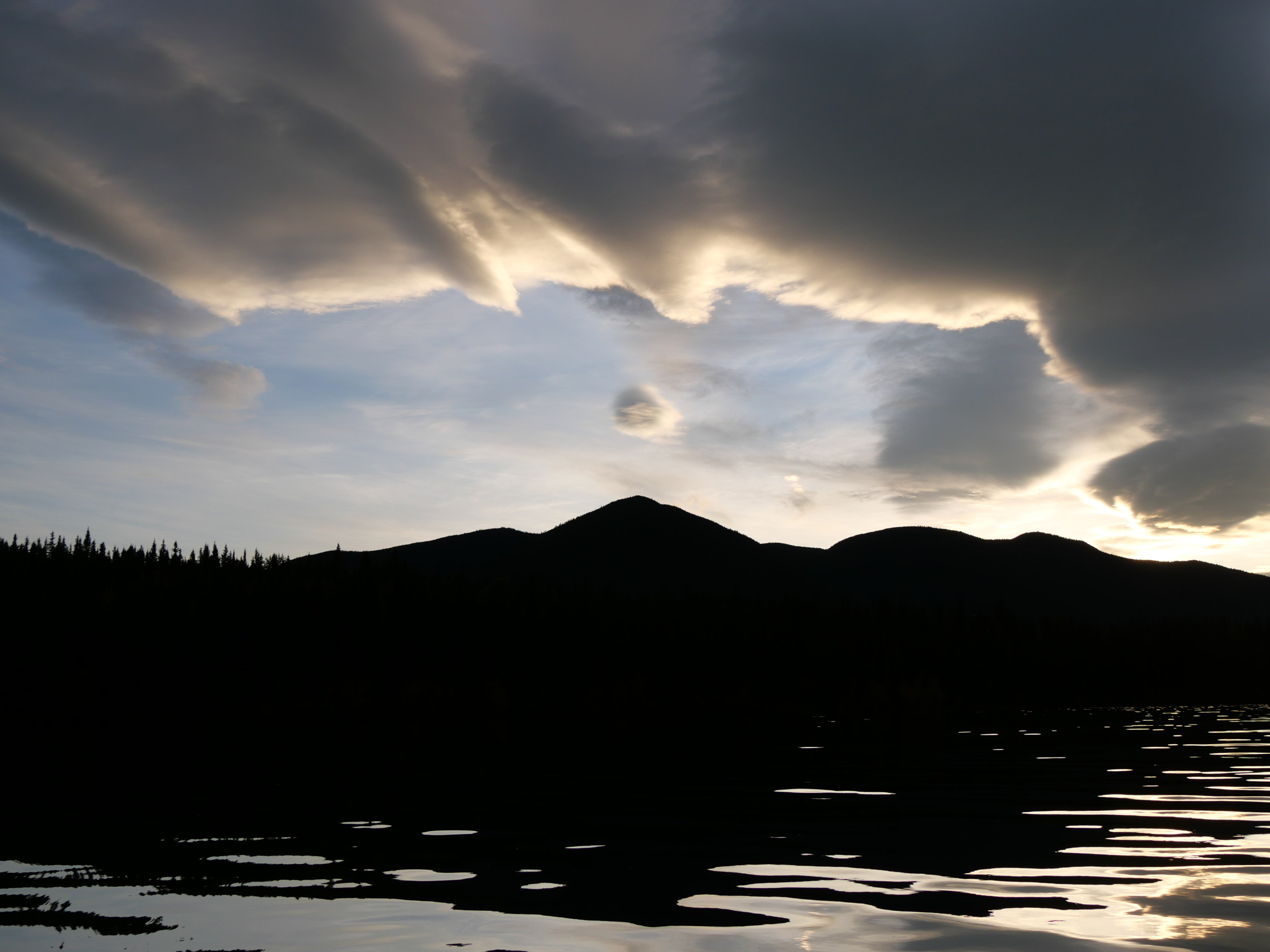
Note the young elephant fleeing the Garden, trunk curling, heading left. West?
LikeLike
Well spotted! That would be N x NW.
>
LikeLike